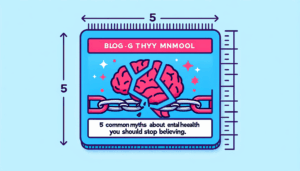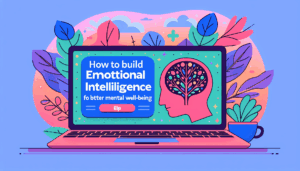Emotions are a fundamental part of the human experience. They can be complex and overwhelming, influencing our thoughts, behaviors, and overall mental health. Understanding and managing our emotions is crucial for maintaining a balanced and fulfilling life. This guide aims to provide insights into the nature of emotions and practical strategies for managing them effectively.

What Are Emotions?
Emotions are psychological states that arise in response to internal or external stimuli. They can be categorized into basic emotions such as happiness, sadness, anger, fear, surprise, and disgust. Each of these emotions serves an evolutionary purpose, helping us respond to challenges and opportunities in our environment.
The Role of Emotions
1. Communication: Emotions help convey our feelings to others. For instance, smiling can indicate happiness, while frowning can signal distress.
2. Decision Making: Emotions play a crucial role in how we make decisions. They can guide our choices and help us assess situations.
3. Motivation: Emotions can motivate us to take action. For example, fear might prompt us to avoid danger, while joy can drive us to pursue goals.
The Importance of Emotional Awareness
Emotional awareness refers to the ability to recognize and understand our emotions. This skill is essential for several reasons:
– Self-Reflection: Being aware of our emotions allows us to reflect on our thoughts and behaviors.
– Healthy Relationships: Understanding our emotions helps us communicate effectively with others and builds empathy.
– Effective Coping: Recognizing our emotions enables us to develop appropriate coping strategies and manage stress.
The Impact of Unmanaged Emotions
When emotions are not recognized or managed, they can lead to negative consequences for our mental health. Unmanaged emotions can manifest as anxiety, depression, anger, or even physical ailments. Understanding the potential impact of unresolved emotions can motivate individuals to engage in emotional management strategies.
Signs of Unmanaged Emotions
1. Mood Swings: Frequent changes in mood can indicate underlying emotional turmoil.
2. Physical Symptoms: Headaches, fatigue, and digestive issues may arise from emotional stress.
3. Isolation: Withdrawal from friends and family can be a sign of struggling with emotions.
Strategies for Managing Your Emotions
Managing emotions involves several techniques and strategies that can be integrated into daily life. Here are some effective approaches:
1. Practice Mindfulness
Mindfulness is the practice of being present in the moment and observing your thoughts and feelings without judgment. Mindfulness techniques, such as meditation and deep breathing, can help you become more aware of your emotions and reduce reactivity.
– How to Start: Set aside a few minutes each day to focus on your breath or engage in a guided meditation.
2. Journaling
Writing about your feelings can provide clarity and insight. Journaling allows you to explore your emotions and identify triggers.
– How to Start: Dedicate a few minutes each day to write about your thoughts and feelings. Consider prompts like “What made me feel happy today?” or “What challenges did I face?”
3. Talk It Out
Sharing your feelings with a trusted friend or therapist can help you process emotions. Verbalizing your thoughts can lead to new perspectives and solutions.
– How to Start: Reach out to a friend or professional and express your desire to talk about your feelings.
4. Develop Healthy Coping Mechanisms
Identify activities that help you cope with stress and negative emotions. This might include exercise, art, music, or spending time in nature.
– How to Start: Experiment with different activities to find what resonates with you.
5. Set Boundaries
Learning to say no and setting healthy boundaries is essential for emotional well-being. It allows you to prioritize your mental health and avoid overwhelming situations.
– How to Start: Assess your commitments and identify areas where you can set boundaries. Practice saying no when necessary.
6. Seek Professional Help
If you find it challenging to manage your emotions on your own, consider seeking help from a mental health professional. Therapy can provide you with tools and support to navigate your emotions effectively.
– How to Start: Research therapists in your area and schedule an initial consultation to discuss your needs.
Conclusion
Understanding and managing your emotions is a lifelong journey that requires practice and patience. By developing emotional awareness and implementing effective strategies, you can cultivate a healthier relationship with your emotions. Remember, it’s okay to seek help and support along the way. Prioritize your mental health, and take the necessary steps to manage your emotional well-being for a more balanced and fulfilling life.
Embrace your emotions — they are a vital part of who you are. Through understanding and management, you can harness their power to lead a more enriched and meaningful life.
AI-Assisted Content Disclaimer
This article was created with AI assistance and reviewed by a human for accuracy and clarity.





Leave a Reply